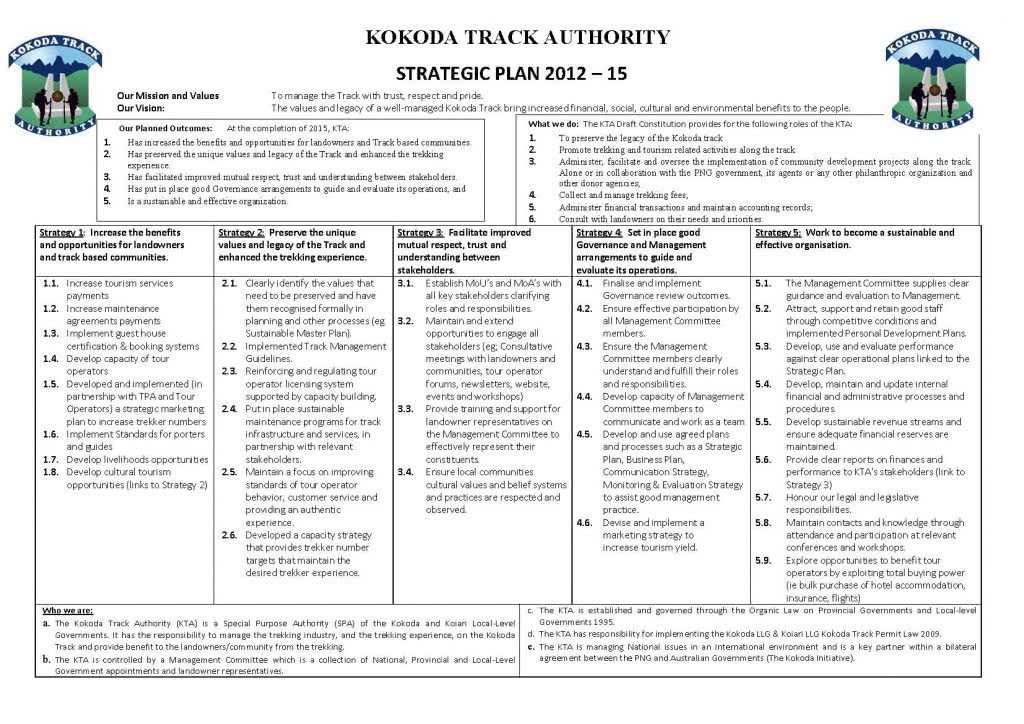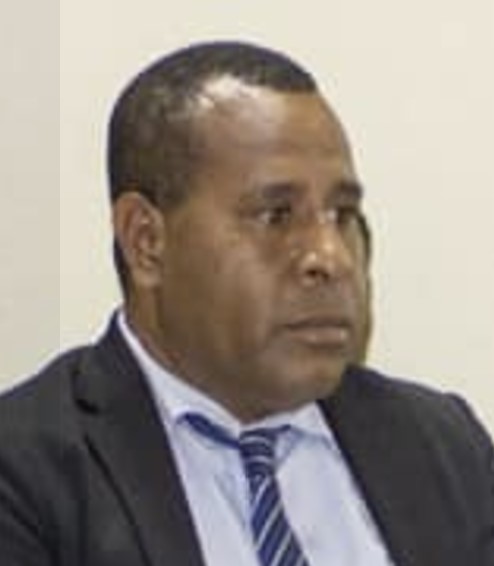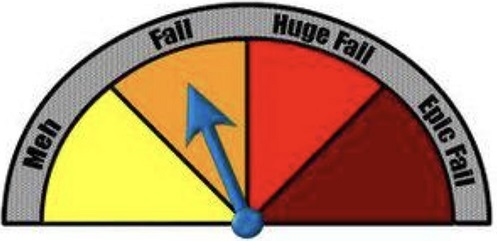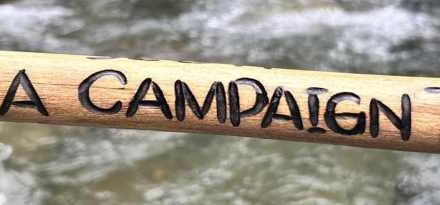A KTA Strategic Plan: 2012-2015 was developed by Australian environmental officials in the isolated seclusion of their Kokoda Track Authority (KTA) offices in Port Moresby in 2011. It was quietly shelved in 2016 when it was realised that not one of the five Strategic Objectives or 33 objectives were achieved.
The plan was put together without any consultation with military history specialists or local village communities – as a result not a single one of the 5 strategies or 33 objectives was achieved!
It has since been quietly shelved and there has been no attempt to develop a replacement plan since it expired in 2015.

Strategy 1: Increase the benefits and opportunities for landowners and track based communities.
- Increase tourism services payments.
What type of ‘tourism service payments’ did the authors of the Strategic Plan envisage?
Were these payments discussed with trek operators, trekkers or village communities?
What was the value of the ‘increase tourism services payments’ between 2012 – 2020? - Increase maintenance agreements payments.
What maintenance agreement were established?
What was the value of ‘increase of maintenance agreement’ payments between 2012 – 2020? - Implement guest house certification & booking systems.
What outcomes were achieved via the ‘guest house certification’ system.
There is never been a system for booking guest houses or campsites implemented by the KTA – this is one of the most fundamental responsibilities of a management system. Why has a booking system not been developed or implemented? - Develop capacity of tour operators.
There is no evidence of any programs being conducted to develop the capacity of tour operators. Why was this included as it is a tour operator responsibility to develop their own capacity? - Developed and implemented (in partnership with TPA and Tour Operators) a strategic marketing plan to increase trekker numbers
There is no evidence of any ‘strategic marketing plan’ ever being produced. Why? - Implement Standards for porters and guides
The standards introduced allow for the exploitation of ‘porters and guides’. The maximum weight of 25kg was 7kg heavier than that allowed during the Kokoda campaign – it has since been reduced to 22.5 kg – this is still 4.5 kg than the maximum weight allowed by Regimental Medical Officers on the trail during the Kokoda campaign and is still far to heavy.
The rate of pay is far too low and has not been increased since 2012. There is no provision for trek operators to provide for the basic amenities i.e sleeping bag and mat or medical welfare. Why? - Develop livelihoods opportunities
The $1 million ‘Village Livelihoods Program’ – conceived in Canberra without any consultation with PNG authorities, villagers or trek operators did not produce an extra dollar in income for villagers. Why was there no consultation?
There is no evidence of a single successful ‘livelihood opportunity’ having being introduced since 2012. Why? - Develop cultural tourism opportunities (links to Strategy 2)
There is no evidence of any ‘cultural tourism opportunities’ being developed since 2012. Why?
Strategy 2: Preserve the unique values and legacy of the Track and enhanced the trekking experience.
- Clearly identify the values that need to be preserved and have them recognised formally in planning and other processes (eg Sustainable Master Plan).
The value of ‘Commemoration’ was not included in the Kokoda Initiative Master Plan. Why not? - Implemented Track Management Guidelines.
There are no guidelines in regard to campsite development and capacity; campsite hygiene; campsite booking systems; trek itinerary management systems’ trail maintenance reporting systems; etc. Why not? - Reinforcing and regulating tour operator licensing system supported by capacity building.
There is no integrity in the trek operator licensing system. No due diligence checks are ever conducted to see if a trek operator complies with the legal requirements of the PNG Investment Promotion Authority. There is no evidence of ‘capacity building’ programs for trek operators. Why? - Put in place sustainable maintenance programs for track infrastructure and services, in partnership with relevant stakeholders.
‘Sustainable maintenance programs for track infrastructure’ have ever been developed and sustainable partnerships with relevant stakeholders have ever been developed. In recent years the Kokoda Initiative has reverted to a colonial system for trail maintenance through the establishment of an agreement with Queensland Parks to provide ranges to do the work local people have been doing for generations. Why? - Maintain a focus on improving standards of tour operator behavior, customer service and providing an authentic experience.
There is no evidence of and improvement in the standards of tour operator behaviour and the ‘authenticity’ of the program has degenerated as the result of the lack of a Master Heritage Interpretation Plan; the lack of any investment in the interpretation of significant sites along the trail; the failure to identify the indigenous names of significant features along the trail; and the lack of investment in discrete signage identifying local flora and fauna along the trail. Why? - Developed a capacity strategy that provides trekker number targets that maintain the desired trekker experience.
What does this mean? There is no evidence of ‘trekker number targets that maintain the desired trekker experience’ being developed. There is no evidence of any research among trekkers to determine what their ‘desired trekking experience is’. Why?
Strategy 3: Facilitate improved mutual respect, trust and understanding between stakeholders.
- Establish MoU’s and MoA’s with all key stakeholders clarifying roles and responsibilities.
We are not aware of any ‘MoU’s and MoA’s’ ever being established with key stakeholders. - Maintain and extend opportunities to engage all stakeholders (eg; Consultative meetings with landowners and communities, tour operator forums, newsletters, website, events and workshops)
As of 2020 The Kokoda Track Authority has not published a newsletter for five (5) years. There has never been an identifiable outcome from a ‘tour operator forum’. There has never been a professionally facilitated workshop in villages along the trail to determine local needs – review progress on anything – or produce a local plan for the following 12 months. - Provide training and support for landowner representatives on the Management Committee to effectively represent their constituents.
We are not aware of any training and support being conducted – if it has been there are not outcomes that can be identified. - Ensure local communities cultural values and belief systems and practices are respected and observed.
This is a meaningless motherhood statement. Professional trek operators ensure local belief systems are respected.
Strategy 4: Set in place good Governance and Management arrangements to guide and evaluate its operations.
- Finalise and implement Governance review outcomes.
We are not aware of any Government review outcomes in regard to the Kokoda trekking industry. Why not? - Ensure effective participation by all Management Committee members.
We are not aware of an ‘effecitve’ participation of Management Committee members. Why not? - Ensure the Management Committee members clearly understand and fulfill their roles and responsibilities.
There is no evidence of Management Committee members ‘clearly understanding their roles and responsibilities’. Why not? - Develop capacity of Management Committee members to communicate and work as a team
There is no evidence of any ‘capacity’ development of Committee members communicating and working as a team. Why not? - Develop and use agreed plans and processes such as a Strategic Plan, Business Plan, Communication Strategy, Monitoring & Evaluation Strategy to assist good management practice.
There is not evidence of any agreed plans and processes being put in place. There has never been a single management protocol developed for the Kokoda trekking industry. Why not? - Develop and implement a marketing strategy to increase tourism yield.
No marketing strategy has ever been developed. Trekker numbers have declined by 43 per cent since the Australian Government assumed control of the Kokoda trekking industry. Why?
Strategy 5: Work to become a sustainable and effective organisation.
- The Management Committee supplies clear guidance and evaluation to Management.
There is no evidence that this has ever happened. Why not? - Attract, support and retain good staff through competitive conditions and implemented Personal Development Plans.
The current staff in the Kokoda Track Authority have no management qualification or experience and have never been trained in management. They have never developed a database or a single management protocol. They have not produced an Annual Report or an audited Financial Statement (in breach of Australian and PNG law) since 2012; or even a newsletter since 2015. Why? - Develop, use and evaluate performance against clear operational plans linked to the Strategic Plan.
There is no evidence of this having happened, Why? - Develop, maintain and update internal financial and administrative processes and procedures.
The Kokoda Track Authority has never produced a financial report to account for the $12 million they have received from trek fees. Why not? - Develop sustainable revenue streams and ensure adequate financial reserves are maintained.
No additional revenue streams, apart from trek fees, have ever been developed. We are not aware of whether the Kokoda Track Authority has ‘adequate financial reserves’ because they never produce any financial reports which is clear breach of proper governance. Why? - Provide clear reports on finances and performance to KTA’s stakeholders (link to Strategy 3)
This has never happened. Why? - Honour our legal and legislative responsibilities.
This has never happened. Only two Australian trek operators have met the requirements of a foreign enterprise as determined by the PNG Investment Promotion Authority yet the Kokoda Track Authority continues to issue them with licenses. Why? - Maintain contacts and knowledge through attendance and participation at relevant conferences and workshops.
Relevant ‘conferences and workshops’ have never been held. Papers have never been called for or distributed. Minutes from tour operator forums are published up to a year after the forum and are never an accurate reflection of the discussion. On occasion Minutes are not distributed despite ongoing requests. Why is this tolerated? - Explore opportunities to benefit tour operators by exploiting total buying power (ie) bulk purchjase of hotel accommodation, insurance, flights).
This has never happened. Why not?

James Enage: CEO PNG Kokoda Track Authority: 2012-2018
LINKS:





